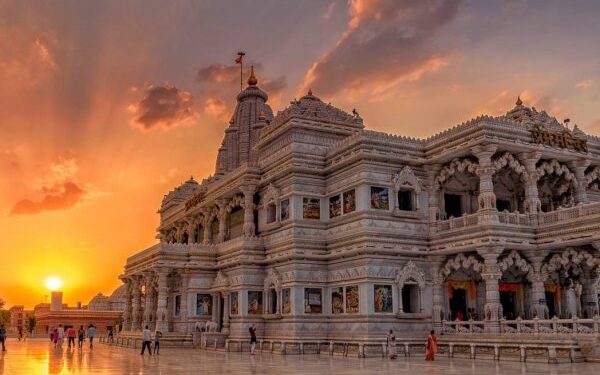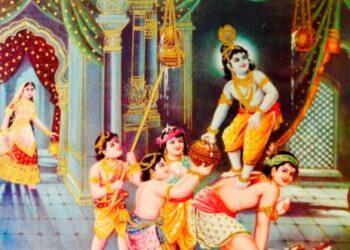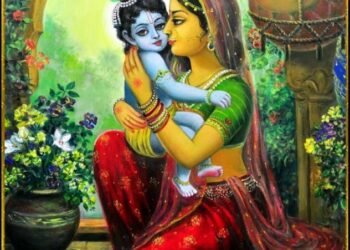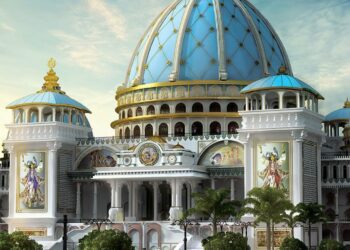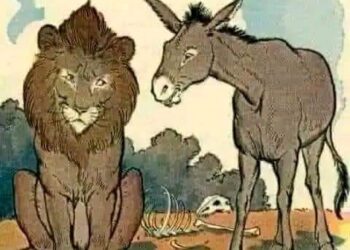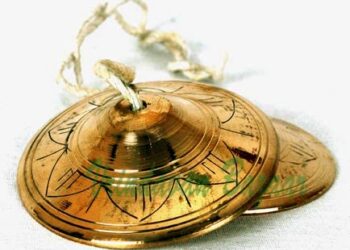Srimad Bhagavatam 1.1.10
śaunaka uvāca
hatvā svariktha-spṛdha ātatāyino
yudhiṣṭhiro dharma-bhṛtāṁ variṣṭhaḥ
sahānujaiḥ pratyavaruddha-bhojanaḥ
kathaṁ pravṛttaḥ kim akāraṣīt tataḥ
SYNONYMS
śaunakaḥ uvāca—Śaunaka inquired; hatvā—after killing; svariktha—the legal inheritance; spṛdhaḥ—desiring to usurp; ātatāyinaḥ—the aggressor; yudhiṣṭhiraḥ—King Yudhiṣṭhira; dharma-bhṛtām—of those who strictly follow religious principles; variṣṭhaḥ—greatest; saha-anujaiḥ—with his younger brothers; pratyavaruddha—restricted; bhojanaḥ—acceptance of necessities; katham—how; pravṛttaḥ—engaged; kim—what; akāraṣīt—executed; tataḥ—thereafter.
TRANSLATION
Śaunaka Muni asked: After killing his enemies who desired to usurp his rightful inheritance, how did the greatest of all religious men, Mahārāja Yudhiṣṭhira, assisted by his brothers, rule his subjects? Surely he could not freely enjoy his kingdom with unrestricted consciousness.
PURPORT
Mahārāja Yudhiṣṭhira was the greatest of all men of religion. Thus he was not at all inclined to fight with his cousins for the sake of enjoying the kingdom: he fought for the right cause because the kingdom of Hastināpura was his rightful inheritance and his cousins wanted to usurp it for themselves. He fought, therefore, for the right cause under the guidance of Lord Śrī Kṛṣṇa, but he could not enjoy the results of his victory because his cousins were all killed in the fight. He therefore ruled over the kingdom as a matter of duty, assisted by his younger brothers. The inquiry was important for Śaunaka Ṛṣi, who wanted to know about the behavior of Mahārāja Yudhiṣṭhira when he was at ease to enjoy the kingdom.
Srimad Bhagavatam 12.2.9
śāka-mūlāmiṣa-kṣaudra-
phala-puṣpāṣṭi-bhojanāḥ
anāvṛṣṭyā vinaṅkṣyanti
durbhikṣa-kara-pīḍitāḥ
SYNONYMS
śāka—leaves; mūla—roots; āmiṣa—meat; kṣaudra—wild honey; phala—fruits; puṣpa—flowers; aṣṭi—and seeds; bhojanāḥ—eating; anāvṛṣṭyā—because of drought; vinaṅkṣyanti—they will become ruined; durbhikṣa—by famine; kara—and taxation; pīḍitāḥ—tormented.
TRANSLATION
Harassed by famine and excessive taxes, people will resort to eating leaves, roots, flesh, wild honey, fruits, flowers and seeds. Struck by drought, they will become completely ruined.
PURPORT
Śrīmad-Bhāgavatam authoritatively describes the future of our planet. Just as a leaf disconnected from a plant or tree dries up, withers and disintegrates, when human society is disconnected from the Supreme Lord it withers up and disintegrates in violence and chaos. Despite our computers and rockets, if the Supreme Lord does not send rain we shall all starve.


